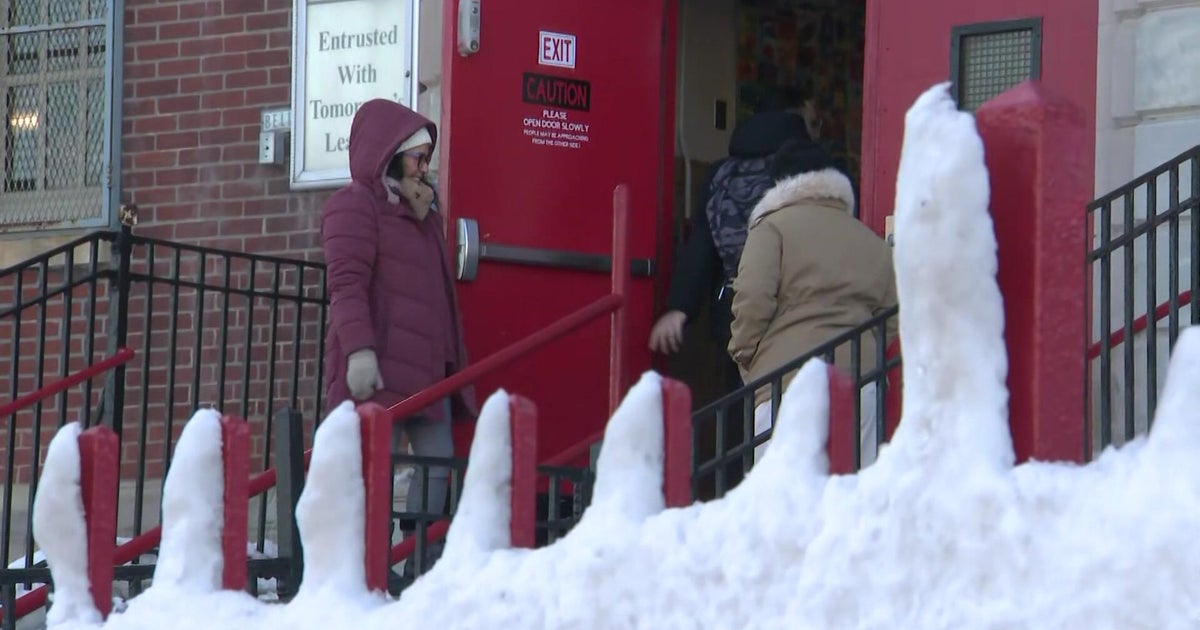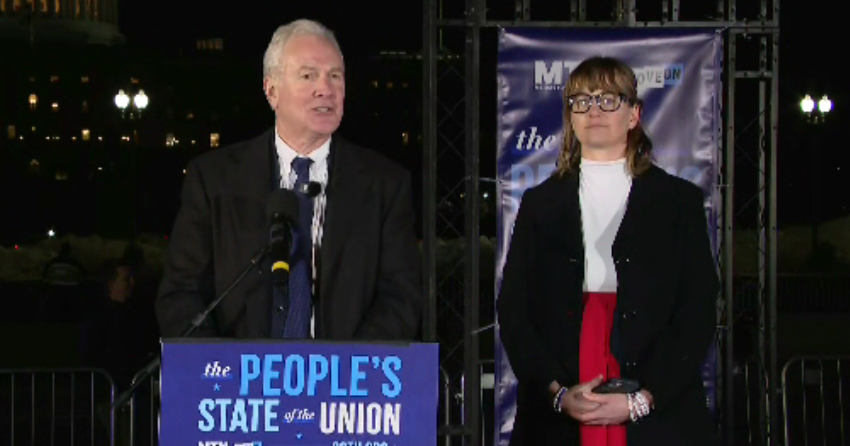Rhode Island Governor Looks To Pioneer Free Tuition For All
PROVIDENCE, R.I. (AP) — A college-for-all idea that sparked Democratic voter enthusiasm during the presidential race could now be tested in the smallest state.
Democratic Gov. Gina Raimondo said she is pushing to make Rhode Island the first state to guarantee free access for every student who wants to go to college. The idea of expanding free public education beyond high school catapulted into the national discourse during Vermont Sen. Bernie Sanders' Democratic presidential campaign, and is now being considered seriously by states including New York.
"As a country we have to start asking ourselves, 'Isn't it the right thing to do now?'" Raimondo said in an interview Friday. "What's the magic of 12th grade? Once upon a time, that's what you needed to get a job. Those days are long gone and vanishing quicker every day."
At a cost she described as a $30 million "drop in the bucket" of Rhode Island's $9 billion budget, Raimondo's proposal would give in-state residents two years of free tuition at public colleges. Details were released Thursday when Raimondo submitted her annual spending plan to state lawmakers. It would need approval from the legislature, which has the nation's second-largest Democratic majority.
Republican leaders are calling it another costly entitlement. Democratic House Speaker Nicholas Mattiello, who has prioritized tax cuts, called it a "laudable goal" but hasn't endorsed it. He said it will have to be vetted by a finance committee.
News of the idea quickly spread among high school students and "people are excited," said 18-year-old Rachel Berson, a senior at the suburban North Kingstown High School, which sends many graduates to the nearby University of Rhode Island. But while cost is a consideration for Berson and her family, so is her desire to study elsewhere.
"The reason I wanted to go out of the state is just for a new perspective, new experiences, just to learn a little bit more about the world," she said.
Raimondo's program would cover a two-year education at the Community College of Rhode Island or the final two years of a 4-year-degree at the University of Rhode Island or Rhode Island College.
By eliminating tuition for students in their junior and senior years, Raimondo said, the aim is to create an incentive to graduate on time. It's a proposal she said came out of conversations with university leaders and students who have had to drop out or delay their education because of financial burdens.
"It gives them an incentive that makes them want to come to the institutions, make sure they take the classes they need, perform well in those classes, and then, when for many families the financial pressures start to grow, the state is ready to step in with assistance," said David Dooley, president of the University of Rhode Island, who projects as much as a 20 percent spike in enrollment of state residents if the program rolls out.
Raimondo said her staff spent months studying tuition-free college programs in states such as Tennessee and Georgia. Most are limited to community colleges. Georgia's more expansive merit-based scholarships have scaled back in recent years by excluding all but the top-ranking high school graduates.
Raimondo said she wanted to avoid the "unintended consequences" of Georgia's high GPA requirement, which "encouraged grade inflation and tended to veer folks into easier classes."
Rhode Island's proposal also differs from one announced this month by Democratic New York Gov. Andrew Cuomo for students from families making $125,000 a year or less. Raimondo didn't want an income cap that would exclude some middle-class families.
Raimondo budgeted $10 million for the program's first year. Only $3 million of that would go directly to pay for students' tuition at Community College of Rhode Island, which costs about $4,000 a year to attend. It is a "last-dollar" scholarship that supplements what is not already covered by federal Pell Grants and other financial aid. More than half of the community college's students already attend classes for free.
Another $6 million in the first year would invest in the state's higher education institutions to build teaching capacity and brace for a future influx. The program would later expand to $30 million annually once it includes students at Rhode Island College, which costs about $8,000 a year to attend, and the University of Rhode Island, which costs more than $12,000. Raimondo said a longer-term goal is halting the flight of skilled young people who find jobs and settle near the out-of-state colleges they attend.
"You will see more people consider URI and go to URI, graduate, and then stick around in Rhode Island," she said.







